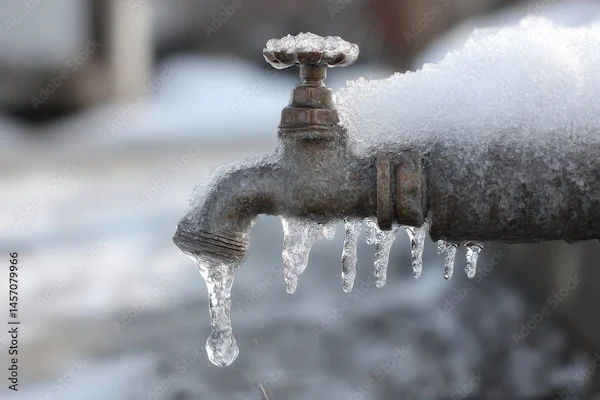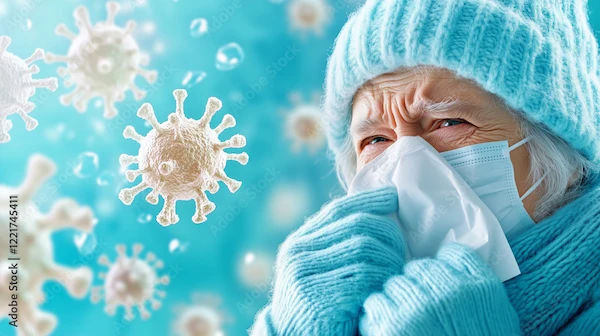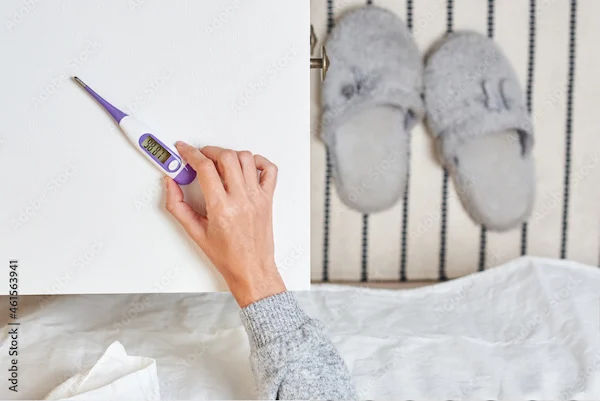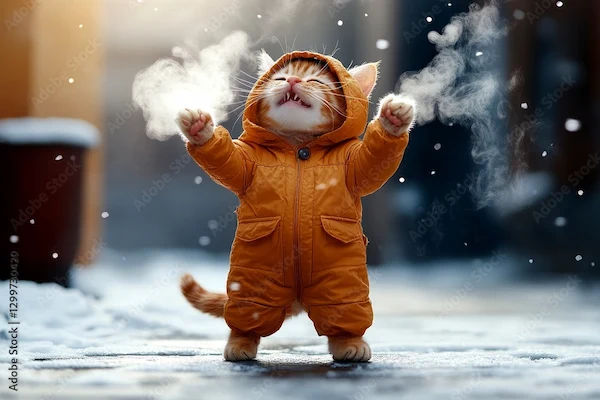Winter Water Intake: Know The Importance
Understanding the importance of water intake, signs of dehydration, the daily requirement of water intake. This article explores the benefits of adequate water intake, suggestions for increasing the water consumption.

Written by Dr.Sonia Bhatt
Last updated on 3rd Jul, 2025

The principal chemical component of our human body is water. Around 50% to 70% of the total body weight is water. Water is the prime source of hydration. It is the most preferred when it comes to fluid intake as it is devoid of additives and unnecessary calories. The daily intake requirement might vary among individuals depending on age, activity level, season, and place. Adequate water intake helps prevent various diseases, including seasonal ailments. Every season has its own feature. Likewise, winter is the season of dry air. It is essential to stay hydrated during this season to compensate for the increased water loss.
Health Benefits of Water
The human body needs water to survive. Every cell, tissue, muscle, bone, and organ needs water for proper functioning. Water in our body plays multiple roles, from carrying nutrients and oxygen to the cells to flushing unwanted pathogens from the bladder. It plays a major role in accelerating digestion and regulating body temperature. Adequate water intake can aid in normalising blood pressure and work towards maintaining the sodium balance in the body.
Hydration Requirements During the Winter Season
Winter is a season characterised by cold weather and low humidity. The winds carry dryness, and we resort to hot showers at times. Our body constantly loses fluid in the form of urine and perspiration, irrespective of the prevalent season. Although we may not feel the need for fluid intake, our bodies tend to dehydrate more in winter than in other seasons of the year.
1. Indications of dehydration- Dehydration is a serious health concern. If not addressed on time, it may lead to serious health concerns. Feeling thirsty is the most common indication of dehydration. Apart from this, one might experience dark urine, dry or cracked skin and lips, constipation, fatigue or dizziness, dry cough and dry mouth, red skin and, low blood pressure with high heart rate if the individual does not meet the daily fluid intake requirement.
2. Benefits of hydration during winter- During the winter season, a balanced diet and adequate water intake are required to generate heat and maintain a healthy body temperature. Our bodily functions slow down unknowingly owing to dehydration, which can be dealt with by water intake. Ensuring the proper metabolism of the body and maintaining blood pressure can help prevent hypothermia during winter days.
Variations in the Body’s Water Need During Winter
Our body’s first response to cold exposure is brown adipose tissue (BAT) thermogenesis and muscle shivering. This generates heat, constricts the blood vessels, and restricts the heat loss from the body. On the other hand, we tend to rely on naturally behavioral thermoregulation to stay protected from cold. This is characterised by warm clothing, staying in shelters and using several heat-generating devices. Though our thirst response dulls during winter days it is essential to maintain the water intake to avoid being sluggish and unfocused.
1. Seasonal change impacts physical activity- Environmental factors are guiding factors for physical and outdoor activities. The weather and dark conditions owing to less daylight contribute to less participation in physical activities. The motivation hits hard during the winter days. However, some people love to engage in physical activities and exercises during winter. This demands higher energy and adequate heat to be generated in the body to keep them warm. Glycogen, the primary energy reservoir, is made to use immediately for the supply of energy. Since glycogen is stored in water, the body starts dehydrating. Thus one tends to feel thirsty even if it is cold outside.
2. Impact of dehydration on health- Dehydration can be identified by the indicators of the human body. The condition of dehydration should be addressed and taken care of on priority. Severe dehydration can lead to critical conditions and result in kidney damage, brain damage, weight loss and can lead to threatening conditions.
Tips to Drink More Water
Drinking water is of utmost importance to maintaining optimal health. Most of us are aware of the same, but in practical life, it is difficult to adhere to the daily water intake regime. Let’s discuss some simple and practical ways to stay hydrated:
Understanding the fluid requirement of the body
Setting up a daily goal for water intake
Starting the day with a glass of water before drinking any beverage
Carry a bottle wherever possible in order to take frequent sips
Stick to more of water intake compared to other beverages or drinks
Include food into the diet which is rich in water content
Set reminders to keep a close watch
Try to drink at least one glass per hour
Inclusion of hydrating fruits in regular diet- Fruits with higher water content can contribute up to 20% of the daily water intake. Fruits like tomatoes, oranges, strawberries, watermelon, and pineapple are rich in water. They can be blended and consumed as juices, which is refreshing and meets the dietary needs simultaneously. Certain vegetables like lettuce, cucumber, bell paper and celery are taken as salads and are highly rich in water content. These enjoyable fruits and vegetables help us add more water to the body and meet our daily needs with a taste of variation.
Decoding Common Misconceptions of Hydration During Winter Days
While it's cooler outside, one needs to debunk some common practiced myths regarding hydration plans.
1. Myth: Cooler temperature means no sweating, one doesn’t need as much water
Facts- During winters, humidity tends to be low, and the sweat evaporates in no time. Also the colder it is, the more our bodies are protected from the cold. It is equally essential to maintain hydration in drier winters like in steamy summer
2. Myth: Dehydration isn’t a risk in cooler weather
Facts- There is no off-season for dehydration. It is important to pay attention to dehydration in all the weather across the year.
3. Myth: The only indicator of fluid loss is sweat
Facts- One vital sign is sweat loss, but it is not the only one. Breathing in cold weather can become difficult at times, which can also contribute to dehydration.
4. Myth: Electrolytes are non-essential in winter
Facts-Electrolytes contribute to maintaining fluid balance, nerve functioning, and muscle contractions. During intense physical activity and workout sessions, one tends to lose electrolytes even in cold weather. Consumption of electrolytes is essential to maintaining sodium balance.
Special Considerations
1. For Children and babies- Children and babies are at higher risk of dehydrating. They involve in lot of physical activities leading to increased need of water intake. By the time, they feel thirsty, they are already dehydrated. They are more likely to become dehydrated during and after physical activities, after severe vomiting and diarrhoea, after seasonal flu and after certain medicines like diuretics. Children should be made to drink enough water at regular intervals, they should always carry a water bottle with them. Drinks like- fruit juices, soft drinks, sports drinks, and flavored mineral waters should be strictly avoided for children.
2. For elders- Studies reveal that most of the elders are underhydrated. Elders tend to lose the appetite and thirst with age. Their craving for fluid decreases with the increasing age. The body composition changes too over the period of time. Also senior citizens take medications which increases the risk of dehydration. Water rich food should be included in their meals if they have trouble drinking fluids. Broths, stews, soups are the most common and easy option which helps in digestion and liquid intake simultaneously. Intake of alcohol should be avoided. Keeping hydration options readily available by carrying a bottle is a good way to stay hydrated.
3. For athletes – Athletes often drink more water to prevent dehydration. Adequate hydration leads to better performance and boosts energy as well. The body temperature is controlled and smooth functioning of the joints are also taken care of by adequate water.
Keeping a Check on Hydration Status
Smaller steps can make a significant impact if followed for a longer period. Measurable goals are practical and yield a space to meet the desired result. Tracking water intake is essential to meet daily needs and maintain hydration without creating deficiency. Setting goals and scheduling water intake based on seasonal change can be a favorable option for individuals looking forward to maintaining a healthy life.
The most convincing sign of a hydrated body is the colour of urine. Pale and clear urine indicates that the individual is well-hydrated.
Conclusion
Winter is a season that brings in a lot of changes, from foods to activities we are engaged in. Drinking of adequate water is the primary requirement of a well nourished individual. Cold weather doesn’t make us feel thirsty but might lead to loss of sodium and potassium from the body. In order to maintain the electrolyte balance and proper functioning of the organs, a sufficient amount of water intake is advised. The winter season is no different when it comes to water loss from perspiration and dehydration. Resorting to fluid intake through a healthy diet would suffice the need and promote healthy living.
Consult Top General Physician
Consult Top General Physician

Dr. Rohinipriyanka Reddy
General Practitioner
9 Years • MBBS
Hyderabad
Apollo 24|7 Clinic, Hyderabad

Dr Divya Lekha Gunta
General Practitioner
10 Years • MBBS, MD (Pathology)
Visakhapatnam
Apollo 24|7 Clinic - Andhra Pradesh, Visakhapatnam

Dr. M L Ezhilarasan
General Practitioner
6 Years • MBBS
Visakhapatnam
Apollo 24|7 Clinic - Andhra Pradesh, Visakhapatnam

Dr. D Bhanu Prakash
General Practitioner
10 Years • MBBS, AFIH, Advanced certificate in critical care medicine, Fellowship in critical care medicine
Hyderabad
Apollo 24|7 Clinic, Hyderabad

Dr. Lakshmi Sindhura Kakani
General Physician/ Internal Medicine Specialist
10 Years • MBBS, MD (General medicine)
Visakhapatnam
Apollo 24|7 Clinic - Andhra Pradesh, Visakhapatnam




